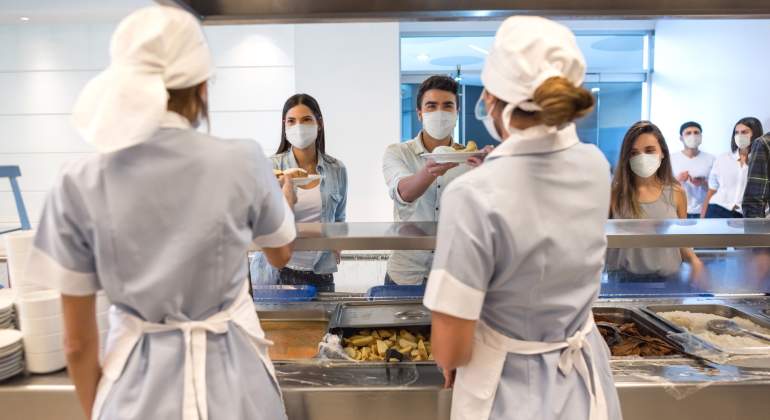Compensation for part-time meals is only contemplated for the realization of the face-to-face session, but not for teleworking, as established by the National Court, in a ruling of September 22, 2021.
The rapporteur, Judge Niño Romero, considers that the provision of the dining room service is in the workplace or in its immediate vicinity, so he considers that “the meaning that should be given to the disputed rule is that compensation for food in split shift is designed for face-to-face work and not for teleworking “.
The judgment rejects that the principle of equality between face-to-face and non-face-to-face workers is affected, since it is not based on the same situation.
Alfredo Aspra, labor lawyer and partner of Labormatters, explains that “this assumption must serve to reinforce the need to proceed to a detailed study of the conventional regulations prior to the adoption of any business decision that may affect internal flexibility measures “.
The workers’ representatives claimed that according to the Collective Agreement, as well as the new regulations on distance work (RD-L 28/2020), the compensation claimed is a right of part-time workers, being indifferent to their work modality.
Functions of the employer
They determine that the specific form of materialization of the compensatory benefit corresponds to the employer, that is, if it is carried out through a canteen service in the workplace or through payment in cash.
The agreement does not oblige to make the payment of an amount of money, but indicates that the delivery of the fixed amount proceeds “unless” the company is providing at its own expense a restaurant or dining room service in the workplace and, in addition , the provision of the service is in the workplace or in its immediate vicinity.
The sentence has a dissenting vote, issued by Judge Ruiz Jarabo Quemada, for whom the lawsuit declaring the right of workers, included in the scope of the agreement, who provide their services by teleworking, to receive compensation for food when they carry out their work on a part-time basis, abolished unilaterally by the company.
The sentence has a dissenting vote that considers that the workplace becomes the domicile
The magistrate considers that the employees carry out their functions in an agreed workplace, such as their home. In addition, they work part-time and there is no change in the meal time margins over that of the work center with physical presence where it is not required to leave the company’s facilities. Even in the agreement it is stated that the face-to-face and teleworkers will have the same rights.
It is interesting to remember that the National Court recognized, in a ruling of March 18, 2021, that the company cannot unilaterally suppress the restaurant tickets that workers receive if it is part of the salary.


